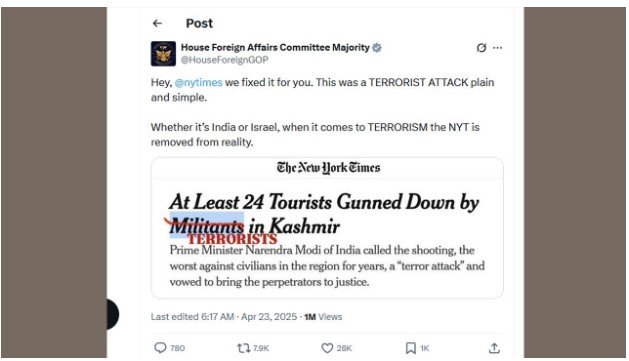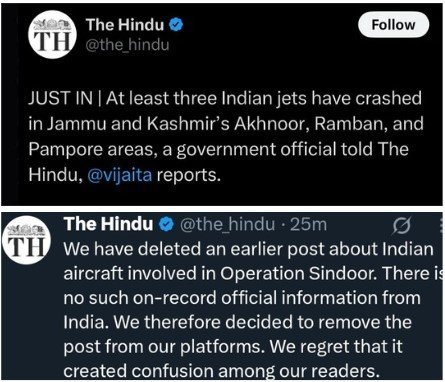The international media’s handling of the Pahalgam terrorist attack has raised questions about journalistic integrity and the accurate portrayal of global events. Leading media outlets like BBC, Reuters, and The Guardian were criticized for referring to the attackers as “militants” or “gunmen” rather than “terrorists,” a choice of words that many believe downplays the gravity of the situation.
In response, the House Foreign Affairs Committee Majority (House Foreign GOP) in US has been vocal in demanding precise language to reflect the ideological motives and severity of such incidents. The House Foreign GOP, an important body in the U.S. House of Representatives, playing a critical role in shaping the nation’s foreign policy.
The committee oversees U.S. diplomatic relations, foreign aid programs, and international agreements. It ensures that America’s global interactions align with national interests. The committee often champions democratic values, combats international threats, and addresses global human rights concerns, making its voice pivotal in holding media outlets accountable for accurate reporting on international incidents.
The committee highlighted The New York Times’ initial misrepresentation of the event. The Times’ headline originally used the term “militants,” which the committee argued failed to capture the nature of the incident. Following the committee’s push for accuracy, the headline was revised to label the assailants as “terrorists,” aligning the narrative with the seriousness of the attack.
In one of its posts, the committee emphasized that acts of terrorism, “whether in India or Israel, should be unequivocally identified as such”. By stating that The New York Times is “removed from reality” when it comes to terrorism, the committee underscored its dissatisfaction with the media’s portrayal of such incidents.
The post also references Indian Prime Minister Narendra Modi’s statement, which called the attack a “terror attack” and vowed justice for the victims, aligning with the committee’s stance on the importance of accurate terminology.
• BBC referred to the attackers as “gunmen” in its headline, avoiding the term “terrorists”.
• Reuters described the perpetrators as “suspected militants,” which sparked outrage.
• Associated Press (AP) also used the term “militants” in its coverage.
• The Guardian repeatedly labeled the attackers as a “group of gunmen” or “suspected militants,” focusing more on the emotional aftermath than the extremist motives.
• The Washington Post similarly referred to the attackers as “gunmen” and “suspected militants”.


